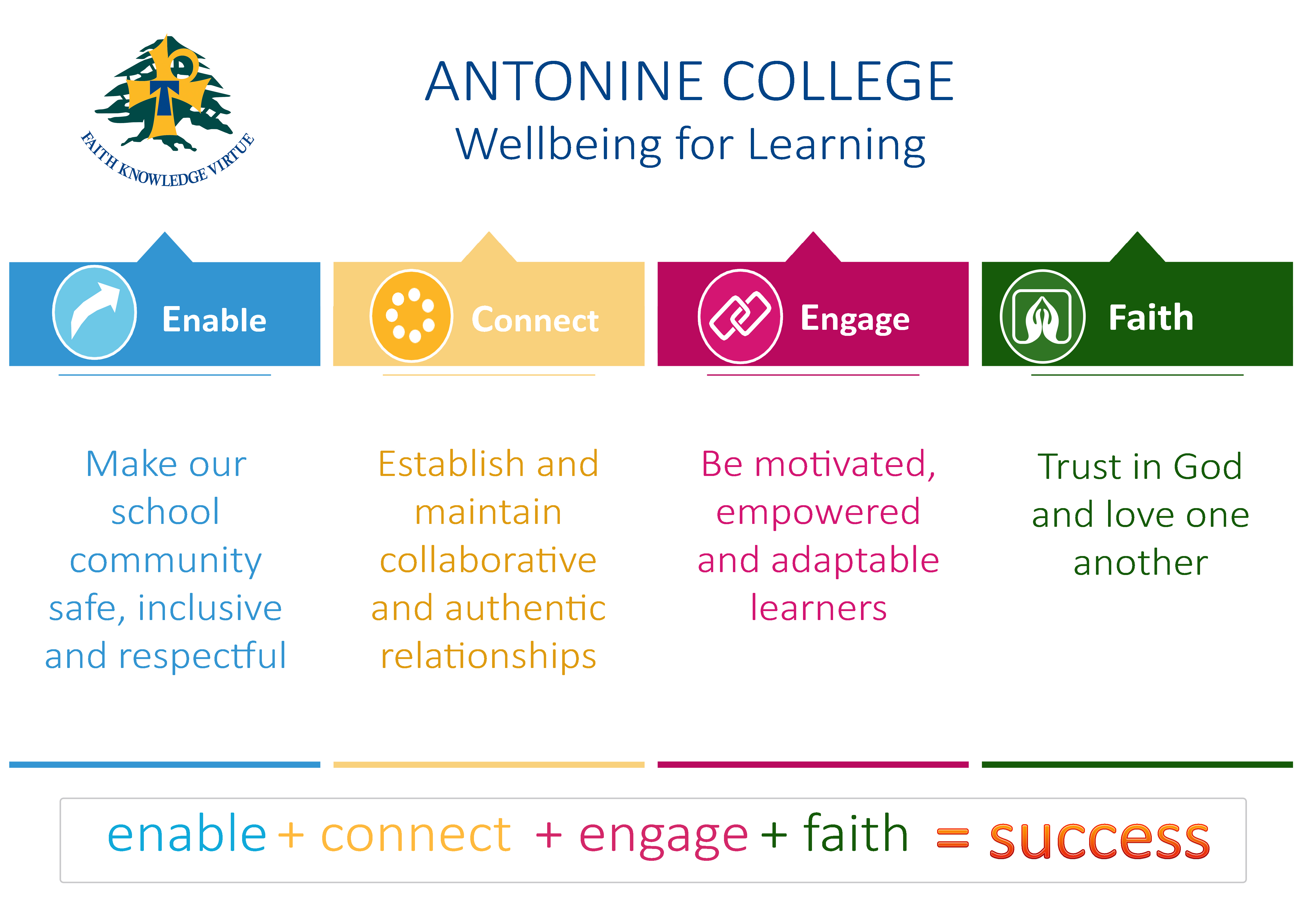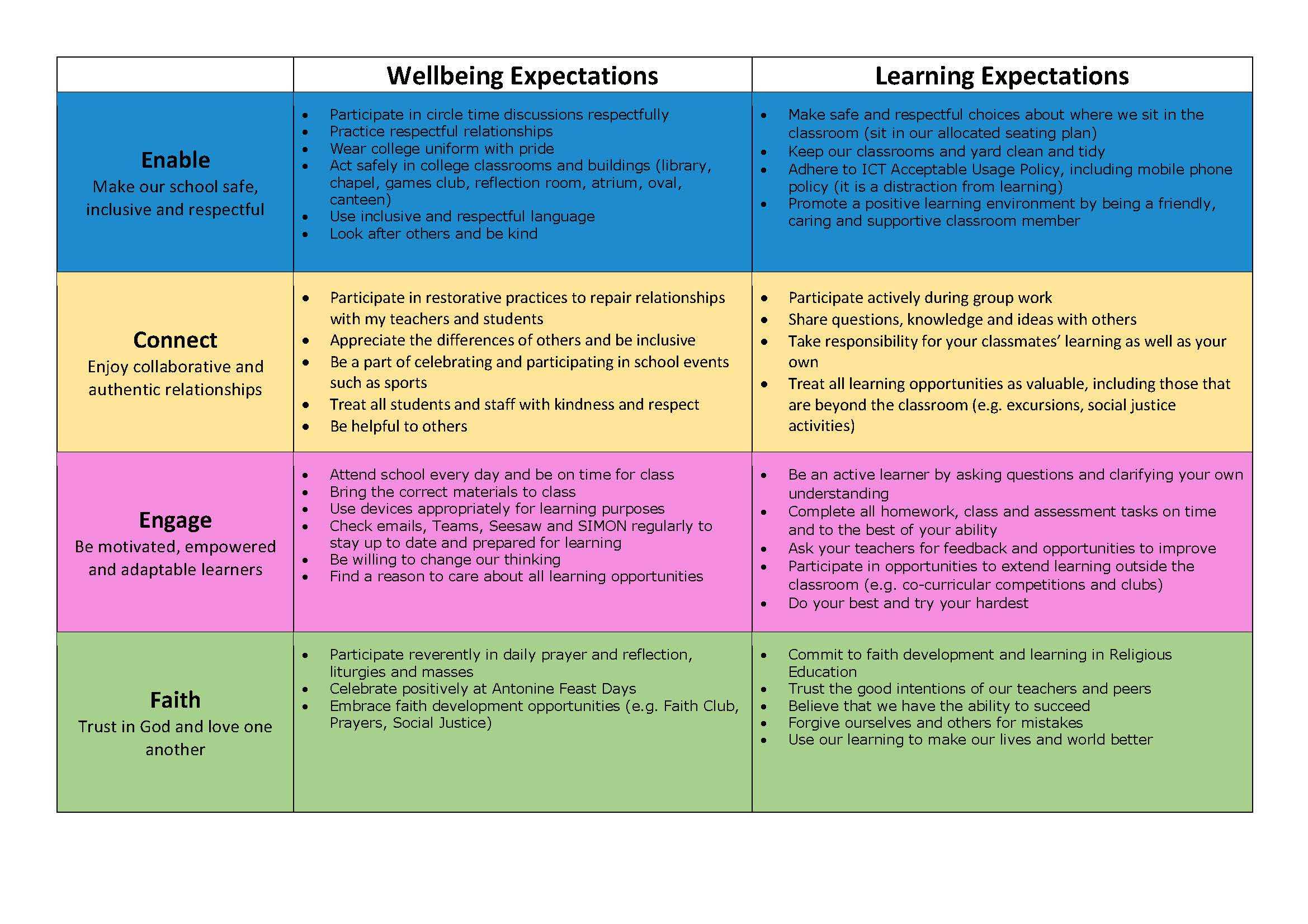Wellbeing
Student Wellbeing and Engagement
Purpose
As a College we recognise that as followers of Christ, baptised into his redeeming death and resurrection, we are called to always be people of care, empathy, compassion, mercy and forgiveness.
The purpose of the Student Wellbeing and Engagement Policy and Procedures is to provide a whole school approach to guidance and support for staff and students to foster student wellbeing and engagement. It may also serve as a procedural guide when student behaviour/s cause harm to individuals, interfere with their learning and the learning of others and is inconsistent with the core values of Antonine College.
The common good of the Antonine College community is guaranteed when its members recognise and observe their mutual rights and duties and work in cooperation to ensure the rights and duties of all community members are recognised, respected and fulfilled.
Guiding Principles
“Antonine College seeks to ingrate faith, life and culture in a safe, affirming and supportive environment where Gospel values are reflected in our daily practices”
- Catholic schools are rich places involved with young people during their most formative years and as such the College recognises its position in fostering the positive development of students that emphasises and builds on their capabilities
- Research concerned with student health and wellbeing emphasises the relationship between academic achievements of students and the promotion of wellbeing
- The development of students’ spiritual, social-emotional, academic, organisational and communication skills along with their academic progress is a responsibility shared collectively by the individual teacher and the entire school community
- The outcome and benefit of promoting positive behaviour in schools is to create safe, supportive learning environments that lead to increased student engagement and improved academic outcomes
- Antonine College is committed to enhancing the wellbeing of its students through a whole school and tiered approach in the following areas


Restorative Practices
Antonine College acknowledges that education in schools is largely about relationships, which can often develop into conflicts which require resolution, forgiveness and healing. Restorative practices help students learn from their mistakes and reconcile and resolve problems with others.
Restorative practice:
- Focuses on repairing the harm done to people and relationships rather than on punishing offenders. This process thus focuses on healing and the empowerment of those affected by an incident and therefore enhances relationships and build a sense of community and connectedness.
- Involves strategies that move from less formal through to formal
- When wrongdoing or misconduct occurs, it is perceived as damage done to a relationship rather than the breaching of school rules
- Engages students in meaningful dialogue and restore relationships by involving those most directly affected.
